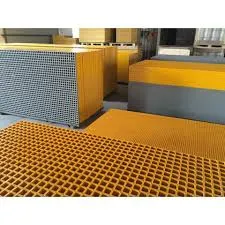
-
 Afrikaans
Afrikaans -
 Albanian
Albanian -
 Amharic
Amharic -
 Arabic
Arabic -
 Armenian
Armenian -
 Azerbaijani
Azerbaijani -
 Basque
Basque -
 Belarusian
Belarusian -
 Bengali
Bengali -
 Bosnian
Bosnian -
 Bulgarian
Bulgarian -
 Catalan
Catalan -
 Cebuano
Cebuano -
 China
China -
 China (Taiwan)
China (Taiwan) -
 Corsican
Corsican -
 Croatian
Croatian -
 Czech
Czech -
 Danish
Danish -
 Dutch
Dutch -
 English
English -
 Esperanto
Esperanto -
 Estonian
Estonian -
 Finnish
Finnish -
 French
French -
 Frisian
Frisian -
 Galician
Galician -
 Georgian
Georgian -
 German
German -
 Greek
Greek -
 Gujarati
Gujarati -
 Haitian Creole
Haitian Creole -
 hausa
hausa -
 hawaiian
hawaiian -
 Hebrew
Hebrew -
 Hindi
Hindi -
 Miao
Miao -
 Hungarian
Hungarian -
 Icelandic
Icelandic -
 igbo
igbo -
 Indonesian
Indonesian -
 irish
irish -
 Italian
Italian -
 Japanese
Japanese -
 Javanese
Javanese -
 Kannada
Kannada -
 kazakh
kazakh -
 Khmer
Khmer -
 Rwandese
Rwandese -
 Korean
Korean -
 Kurdish
Kurdish -
 Kyrgyz
Kyrgyz -
 Lao
Lao -
 Latin
Latin -
 Latvian
Latvian -
 Lithuanian
Lithuanian -
 Luxembourgish
Luxembourgish -
 Macedonian
Macedonian -
 Malgashi
Malgashi -
 Malay
Malay -
 Malayalam
Malayalam -
 Maltese
Maltese -
 Maori
Maori -
 Marathi
Marathi -
 Mongolian
Mongolian -
 Myanmar
Myanmar -
 Nepali
Nepali -
 Norwegian
Norwegian -
 Norwegian
Norwegian -
 Occitan
Occitan -
 Pashto
Pashto -
 Persian
Persian -
 Polish
Polish -
 Portuguese
Portuguese -
 Punjabi
Punjabi -
 Romanian
Romanian -
 Russian
Russian -
 Samoan
Samoan -
 Scottish Gaelic
Scottish Gaelic -
 Serbian
Serbian -
 Sesotho
Sesotho -
 Shona
Shona -
 Sindhi
Sindhi -
 Sinhala
Sinhala -
 Slovak
Slovak -
 Slovenian
Slovenian -
 Somali
Somali -
 Spanish
Spanish -
 Sundanese
Sundanese -
 Swahili
Swahili -
 Swedish
Swedish -
 Tagalog
Tagalog -
 Tajik
Tajik -
 Tamil
Tamil -
 Tatar
Tatar -
 Telugu
Telugu -
 Thai
Thai -
 Turkish
Turkish -
 Turkmen
Turkmen -
 Ukrainian
Ukrainian -
 Urdu
Urdu -
 Uighur
Uighur -
 Uzbek
Uzbek -
 Vietnamese
Vietnamese -
 Welsh
Welsh -
 Bantu
Bantu -
 Yiddish
Yiddish -
 Yoruba
Yoruba -
 Zulu
Zulu
Exploring the Advantages and Applications of FRP Vessels in Modern Engineering
Exploring the Advancements in FRP Vessels A Sustainable Approach to Marine Innovations
Fiber Reinforced Polymer (FRP) vessels have gained significant attention in recent years due to their remarkable properties and sustainable advantages, paving the way for innovations in marine engineering. FRP vessels are crafted from composite materials that combine fibers, such as glass or carbon, with polymer resins. This unique composition provides a plethora of benefits, including enhanced strength-to-weight ratios, corrosion resistance, and reduced maintenance, making them ideal for various maritime applications.
.
Corrosion resistance is another significant benefit of FRP vessels. Traditional metal vessels are susceptible to rusting and degradation from harsh marine environments, which can lead to safety concerns and expensive repairs. In contrast, FRP materials resist the corrosive effects of saltwater, chemicals, and UV radiation, resulting in longer lifespans and lower lifecycle costs. This durability not only enhances the structural integrity of the vessels but also minimizes the environmental impact associated with frequent repairs and replacements.
frp vessel

The manufacturing process of FRP vessels allows for greater design flexibility, enabling engineers to create customized shapes and sizes tailored to specific needs. Whether for a fishing boat, cargo ship, or luxury yacht, the versatility of FRP materials supports innovation in design, allowing for more efficient vessel layouts and improved functionality. This adaptability is crucial in today’s competitive maritime industry, where companies are continually seeking ways to optimize performance and meet customer demands.
Sustainable manufacturing practices also characterize FRP vessel production. Many manufacturers are now focusing on eco-friendly materials and processes, utilizing renewable resources and reducing energy consumption during production. Furthermore, the lightweight nature of FRP contributes to fuel efficiency and lower carbon emissions during operation, aligning with global efforts to combat climate change. As the maritime industry increasingly embraces sustainability, FRP vessels are becoming a prominent choice for environmentally-conscious operators.
Despite their numerous advantages, the adoption of FRP vessels is not without challenges. The initial production costs can be higher than those associated with traditional vessel materials. However, the long-term savings in maintenance and fuel efficiency often offset these initial expenditures, making FRP a wise investment for many operators. Additionally, the recycling of FRP materials remains an area of ongoing research, as the industry seeks to develop methods for reclaiming and reusing these composites at the end of their lifecycle.
In conclusion, FRP vessels represent a significant advancement in marine technology, combining durability, efficiency, and sustainability. As the maritime sector faces increasing pressures to innovate while minimizing environmental impact, FRP vessels stand out as a viable solution. With ongoing research and development, we can expect to see continued improvements in FRP technology, ensuring that these vessels play a crucial role in the future of marine engineering and environmental stewardship.
Latest news
-
Exploring the Benefits of Top Hammer Drifter Rods for Enhanced Drilling PerformanceNewsJun.10,2025
-
High-Precision Fiberglass Winding Machine for GRP/FRP Pipe Production – Reliable & Efficient SolutionsNewsJun.10,2025
-
FRP Pipes & Fittings for Shipbuilding - Corrosion-Resistant & LightweightNewsJun.09,2025
-
Premium FRP Flooring Solutions Durable & Slip-ResistantNewsJun.09,2025
-
Premium Fiberglass Rectangular Tanks Durable & Lightweight SolutionNewsJun.09,2025
-
Tapered Drill String Design Guide Durable Performance & UsesNewsJun.09,2025









